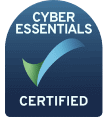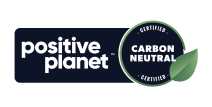This week, I presented a webinar giving my thoughts on Google’s March 2024 core update.
If you didn’t catch it, it will soon be available in our SEO webinars on demand section of our site.
During the webinar, we took live questions, and the SEO team did their best to ensure each one was met with a thoughtful and informative answer.
I’ve collated the questions below and expanded on our answers a little, given the space afforded to us in addressing them in a blog post. Where we’ve created additional posts that might help, I’ve linked these too.
Q: How does Google address a large upload of new content in relation to the launch of a new brand?
A: Although we don’t have official confirmation, the appearance of a brand-new domain and its content will carry with it some leniency. Don’t forget that Google also loves new, fresh content as well. Its more the combination of lots of new content very quickly, along with other flags that AI-generated content will trigger that is the bigger issue.
Q: How does Google view the sudden emergence of content on a campaign site? Are they too small to be concerned with?
A: This also comes down to a mix of signals. If your content is human created, the scaling signal should not be anything to worry about, especially if your campaign has a finite timeframe within which it’ll be “live”.
See also:
Q: Does the author page need to be a “page”, or could it be a filter in a news section or a page with lots of author bios, such as a meet the team section?
A: Yes, it can be a category or tag filter, but we’d recommend adding the author schema in to support that. The filter page should also have its own URL, and that should be made a canonical URL using the canonical tag.
Q: Can the outbound links be to other content on our website?
A: Yes, links within your content can, and should, include internal links to other pieces of content on your own site. When we refer to outbound links, we mean links pointing outward to other websites. When a link points to content on the same site, we refer to it as an “internal link”.
See also:
- https://www.skittledigital.com/internal-linking-strategy-10-step-guide/
- https://www.skittledigital.com/9-step-process-build-ultimate-pillar-page/
Q: If you use freelance content writers for website content, how do you get around the authorship and make this visible?
A: If the freelancer writes for you regularly, it’s worth assigning them an author bio page. If they only write occasionally, you might consider publishing their content under the names of people within your organisation rather than under the freelancers’ name.
Some sites only allow freelancers to have author bio pages if they have written for other, relevant sites – this helps with topical relevance and towards satisfying the Expertise criterion.
See also:
Q: I work in a law firm, and we use “legally reviewed by” and internally link to the profile of the solicitor expert in that topic. Will this act in the same way as an author, as they have more legal authority than the content writer? Or will the content writer need their own profile?
A: There’d be some complexity in the setup, but it would be possible to send the authorship signals to the solicitor over the original writer. There is also a solicitor-specific schema that can be added alongside the author schema that would help Google understand better.
See also:
Q: How accurate do you feel Google’s AI detector is? We tend to have minimal copy on our PDPs. With this update, is there more of a cause to increase our copy count in a bid to provide Google with more evidence that it was not AI-created?
A: That’s a good question. Our initial feeling is that the AI detection is actually pretty good. We’ve seen very few cases whereby a site has been penalised unfairly as part of this update. It’s tough for e-commerce sites, but we’d suggest checking if your PDPs have been affected first by using one of the methods before taking action to increase page copy.
See also:
- https://www.skittledigital.com/updated-google-serps-features-new-rich-results-retail/
- https://www.skittledigital.com/14-rules-for-better-seo-breadcrumbs/
Q: When you use the site:url method and your listing does not show, is there a problem?
A: Yes, if you get no results showing up using the site: operator, then the page you’re looking for has been deindexed (or not indexed to begin with). Remember that if you’re checking an individual URL using this method, Google should only return one result per URL. More than one, and you’ve got a duplicate content issue!
See also:
- https://www.skittledigital.com/how-to-recover-from-manual-action-google-penalty/
- https://www.skittledigital.com/technical-duplicate-content-issues-fix/
Q: Are there any resources on schema and implementation that you could recommend?
A: The best resource is Schema.org – you can search for all the schema relevant to you, and it gives examples of different implementation methods that you can pass directly to your development resource! If you get stuck knowing exactly which schema to pick, then just let us know.











